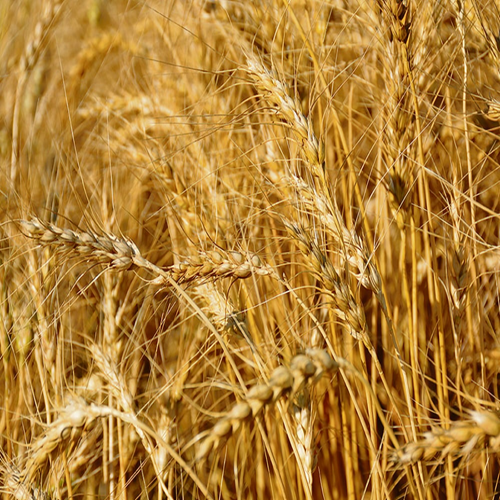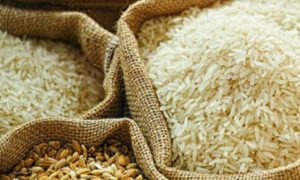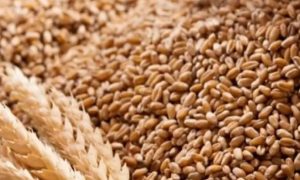Egypt aims to procure 3.5 million tonnes of local wheat in 2024

Egypt has targeted obtaining 3.5 million tonnes of local wheat during the 2024 procurement season, Ali Al Moselhy, the country’s minister for supply and internal trade, said on Saturday. This takes place ahead of the wheat harvest in Egypt that begins in April and lasting for several months.
The government is aiming to enhance self-sufficiency in wheat and corn crops, with the aim of increasing the percentage of wheat production to 53 per cent from 45 per cent in 2021 and 56 per cent for corn by 2025/2026, news magazine Egypt Today quoted Hala Al-Saeed, minister of planning, as saying on Saturday.
Egypt has planted 3 million feddan worth of wheat since November 2023, a year-on-year increase of almost half a million acres, the Cabinet said in January 2024.
The country’s wheat imports increased by 14.5 per cent to 11 million tonnes in 2023 from 9.6 million tonnes in 2022, assistant supply minister Ibrahim Ashmawy told Ashraq Bloomberg.
Egypt imported about 12 million metric tonnes of wheat every year from 2017 to 2021, a 2022 report by the United States Department of Agriculture found.
The Arab world’s third-largest economy is often the world’s largest wheat importer, depending on foreign supplies for more than 50 per cent of its needs.
It consumes 18 million tonnes of the grain per year and makes up the difference between imports and consumption through local production.
In November, the Egyptian Cabinet increased the local wheat procurement price to 1,600 Egyptian pounds ($33.7) per ardeb (150kg) from 1,500 Egyptian pounds for the new harvest season to incentivise farmers to supply to the state.
The government purchased 3.8 million tonnes of wheat from local farmers during last year’s harvest season, which started on April 1 and ended on August 31.
The war between Russia and Ukraine – Egypt’s main wheat suppliers – has led to a surge in prices globally, increasing the nation’s already heavy import bill.
Wheat is a key commodity in Egypt, where about 70 million of its 104 million people depend on state-subsidised bread for their survival.
Abu Dhabi-based agribusiness company Al Dahra and Abu Dhabi Exports Office (Adex) secured a $500 million multiyear deal to supply Egypt with wheat last year.
The five-year agreement, worth $100 million per year, started providing Egypt with imported milling wheat as of last year, Al Dahra said.
Egypt, Indonesia, Turkey, Algeria and China are the world’s top five wheat importers, according to the Food and Agriculture Organisation of the UN.
Egypt’s economy has faced many of challenges over the past few years, struggling with rising inflation, foreign exchange shortages and elevated debt levels.
Business activity in the country’s non-oil private sector contracted at the sharpest rate in more than a year in February, driven by a worsening foreign exchange crisis and a steep drop in customer sales, S&P Global said on March 5.
The country has felt the effects of the Red Sea shipping disruption as a result of Yemen’s Houthi rebels attacking vessels, which has about halved key Suez Canal revenue so far in 2024, the ratings agency said.
Meanwhile, Egypt’s agricultural exports reached $1.5 billion during the first quarter of 2024, marking a $300 million increase compared with the same period last year, Elsayed Elkosayer, the Minister of Agriculture and Land Reclamation, said on Saturday.
Agricultural exports exceeded 2.2 million tonnes despite global and regional challenges affecting supply chains, he said.
Egypt now exports more than 400 agricultural commodities to 160 countries, the minister added.
In 2023, exports of Egypt’s fresh and processed agricultural products amounted to about $9 billion.
Separately, the International Monetary Fund (IMF) approved an $8 billion loan package for Egypt, which is expected to boost the country’s flagging economy that has also been affected by the Israel-Gaza war.
The programme adds $5 billion to the $3 billion 46-month Extended Fund Facility signed in December 2022 and enables the Arab world’s most populous economy to immediately draw $820 million, the Washington-based IMF said on Friday.
The IMF noted that Egypt’s economic woes have worsened at the onset of the Russia-Ukraine and Israel-Gaza wars, and lately the tensions in the Red Sea.
The IMF agreed to widen the agreement after Egypt’s economy was further hurt by the Gaza crisis, which slowed growth in tourism and triggered attacks from Yemen on shipping in the Red Sea, halving Suez Canal revenue.
Tourism and shipping are two of Egypt’s main sources of foreign exchange.
The expanded loan agreement was announced on March 6, and was made hours after the Central Bank of Egypt increased interest rates and allowed the local currency to freely float with no interventions from the state.
Cairo received a first tranche of $347 million after signing the December 2022 deal.
Source Link : https://www.thenationalnews.com/business/economy/2024/03/31/egypt-aims-to-procure-35-million-tonnes-of-local-wheat-in-2024/













